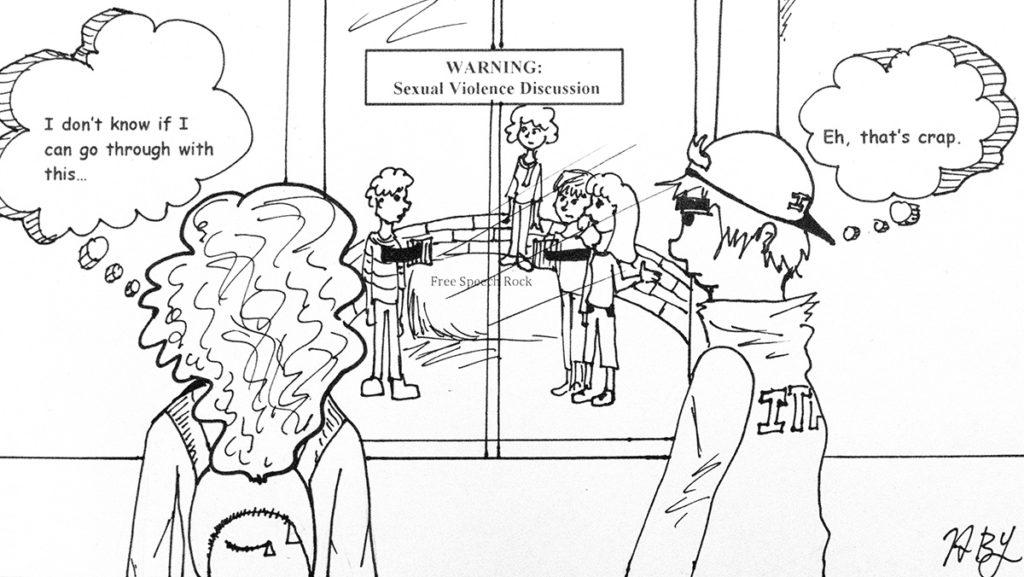When the Office of Civic Engagement was established in 2012, it was touted as a cornerstone of IC 20/20. The stated purpose of civic engagement was to immerse Ithaca College students, faculty and staff in community-based learning and problem-solving through a variety of opportunities. Despite this, the office has never had a leader whose attention was not divided among other pressing responsibilities.
The Office of Civic Engagement has now been put on hold following the departure of Patricia Spencer, the faculty director for service learning in the office, and executive director Laurie Worrall, who was also the executive director of New York Campus Compact, last semester.
Worrall and Spencer held these positions for two years, as did the previous directors of the office. Anthony Hopson was an administrator in the Office of the President when his responsibilities were “reorganized” to free some of his time so that he could be named director in 2012. Marian Brown also joined the civic engagement staff at this time, despite already fulfilling the role of special assistant for campus and community sustainability. The college has yet to name a director for this office for whom civic engagement would be their sole responsibility.
Outsourcing the office’s services to the Office of Student Engagement and Multicultural Affairs is a temporary solution resulting from the lack of an executive director. But an office such as OSEMA, with an already full load of responsibilities, cannot dedicate the resources to civic engagement that a designated office and staff could and should. The resources and physical space for civic engagement have been stifled before a new director could be brought in, which begs the question of whether the administration was fully behind implementing civic engagement in the first place. The failure of the Office of Civic Engagement is a prime example of an initiative that seemed to be all talk and no action.
With no established selection date for a new director of the office, civic engagement only remains a goal that has yet to be fully achieved. The circumstances surrounding the Office of Civic Engagement are only symptomatic of a greater problem with President Tom Rochon’s administration: a lack of clear direction. As the Office of Civic Engagement continues to exist as only an obsolete entity on campus for the time being, it remains one of the many promises-turned-failures of Rochon’s tenure at the college.














